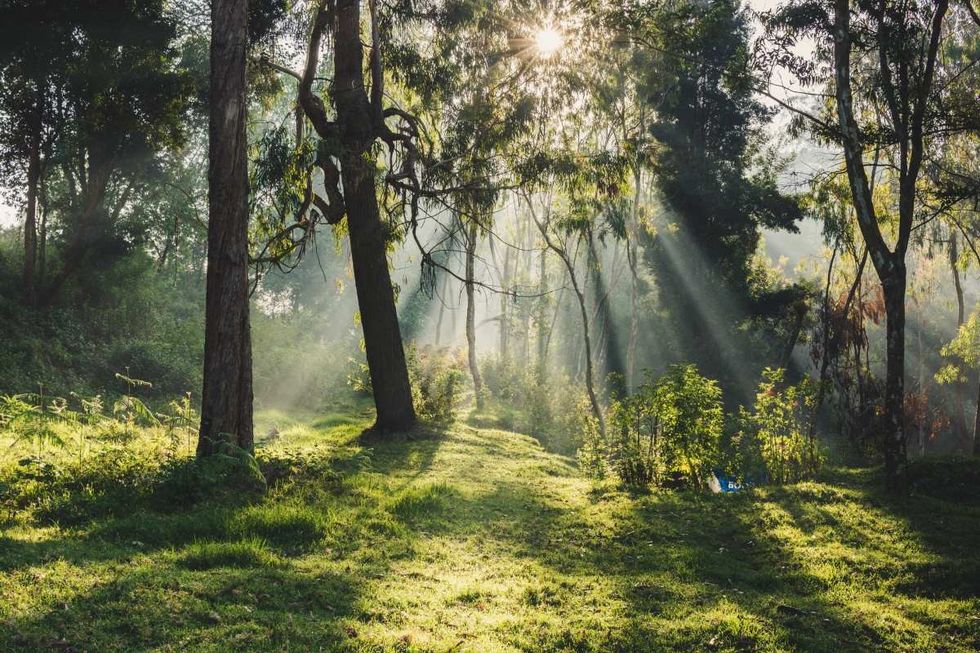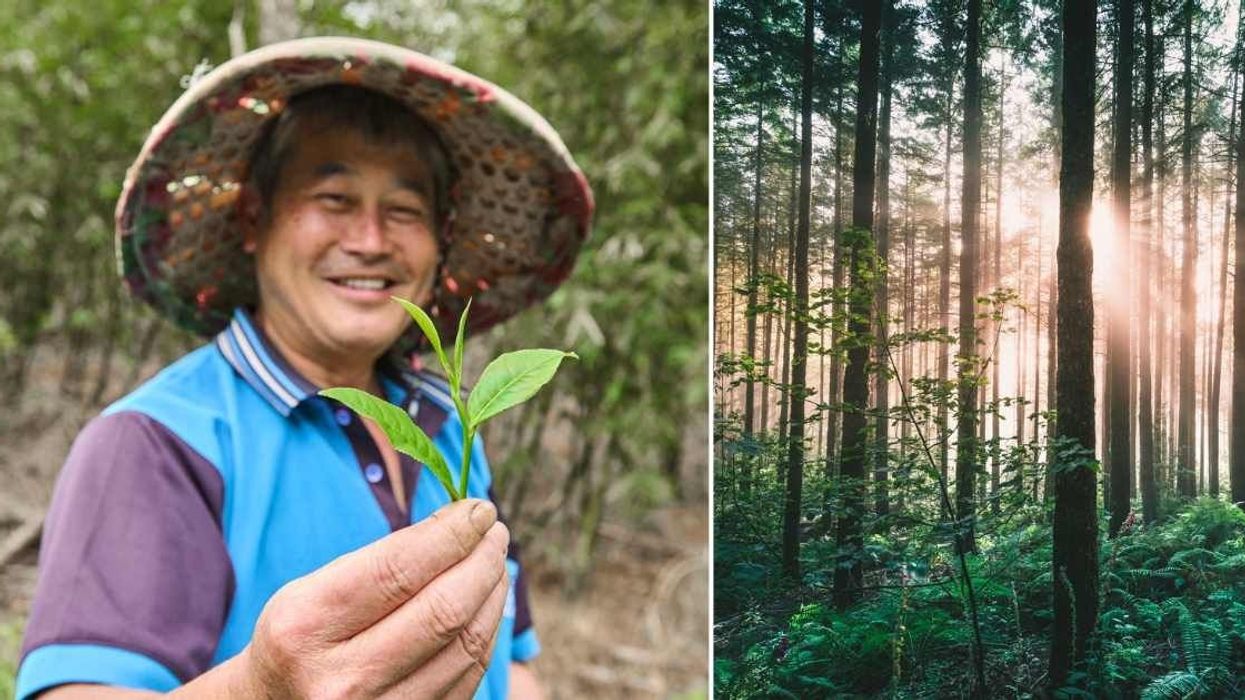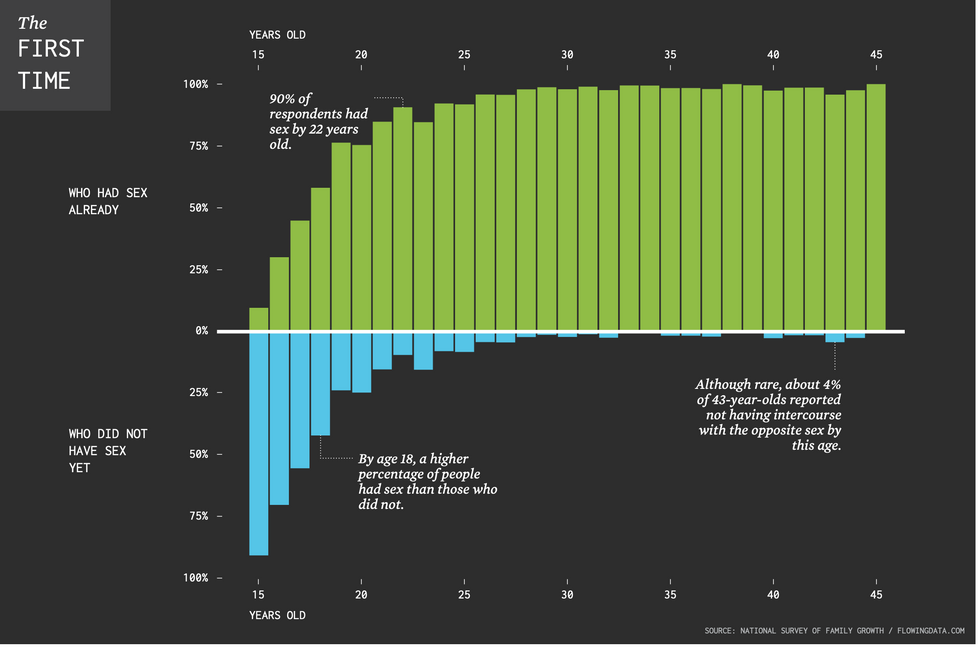While conflict between humans and nature continues, some people quietly work toward coexistence. Since 2008, a herd of 100 wild elephants has crossed a rivulet each year to visit Assam's “Molai Forest.” Though local villagers worry about their crops being trampled, Jadav “Molai” Payeng, the forest's creator, stands firm, insisting that "humans must adjust." He even planted the forest himself as an example.
Jadav spent decades cultivating this forest with his own hands, earning the nickname “The Forest Man of India” from former president A.P.J. Abdul Kalam NPR reports that he is now planning to convert another patch of barren land into his forest’s green underbelly. Jadav wakes up each day before dawn, paddles along a small river, packs his lunch and enters a forest that he has created single-handedly. Known as “Mulai Kathoni,” the forest is a wholesome ecosystem that hosts a variety of wildlife species including Bengal tigers, Asian elephants, Indian rhinoceros, reptiles, over 100 deer, and rabbits. Located inside Majuli, the largest river island in the world, the forest spans an area of 550 hectares (1,360 acres).

This remarkable forest exists thanks to Jadav’s unwavering determination, sparked by a heartbreaking experience. When Jadav was just a boy, the roaring waters of the Brahmaputra river flooded and eroded his island, destroying homes, and leaving stretches of barren sands all around. "Earlier, this was all sand. No trees, no grass — nothing was here. Only driftwood. Now, seeds of grass carried downriver from China wash up, and pollinate, on their own," he told NPR. Today, the forest is swaying with avenues of thousands of trees including cotton trees, bamboo trees, Arjun, silk trees, Royal Poinciana, and more, as per Interesting Engineering.
But it wasn’t only flood and erosion that inspired Jadav to pursue the strenuous mission of spinning an entire forest all by himself. In 1979, Jadav encountered a horrifying sight. As he was walking through the island, he came across a patch where piles and piles of snakes were bundled on the ground. Tormented by the lack of a tree to provide shade, the cold-blooded creatures had died in the scorching heat. A heartbroken yet determined Jadav decided to grow a forest in that moment, even though locals called him “crazy.”
Jadav’s single-handed effort first gained attention in 2008 when the herd of wild elephants started visiting the forest. That’s when the forest was named after him. He even went on to receive the highest Indian honor, the Padma Shree award.
In 2012, a local photographer, Jitu Kalita, created a documentary film “Forest Man” based on Jadav’s story, and it instantly captured public interest and bagged several awards. Jadav's uplifting spirit also inspired a book called "Jadav and the Tree Place" written and illustrated by Vinayak Varma.
Although scientists announced that in 15-20 years, Majuli could be completely gone, Jadav refused to give up. According to NPR, he is even planning to plant an additional 5,000 acres of forest on the island, aiming to cover the remaining of Brahmaputra’s barren sandbars. At the end of the day, Jadav says that he feels like he has "set an example of what one man can do."


















 A symbol for organ donation.Image via
A symbol for organ donation.Image via  A line of people.Image via
A line of people.Image via  "You get a second chance."
"You get a second chance." 


 36 is the magic number.
36 is the magic number. According to one respondendant things "feel more in place".
According to one respondendant things "feel more in place". 
 Some plastic containers.Representational Image Source: Pexels I Photo by Nataliya Vaitkevich
Some plastic containers.Representational Image Source: Pexels I Photo by Nataliya Vaitkevich Man with a plastic container.Representative Image Source: Pexels | Kampus Production
Man with a plastic container.Representative Image Source: Pexels | Kampus Production
 Canva
Canva It's easy to let little things go undone. Canva
It's easy to let little things go undone. Canva
 Photo by
Photo by 
 Teens are waiting longer than at any point in the survey’s history. Canva
Teens are waiting longer than at any point in the survey’s history. Canva Chart on the age of a person’s first time having sex.National Survey of Family Growth/flowing data.com | Chart on the age of a person’s first time having sex.
Chart on the age of a person’s first time having sex.National Survey of Family Growth/flowing data.com | Chart on the age of a person’s first time having sex.